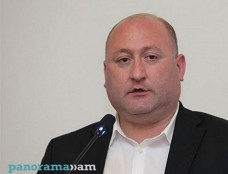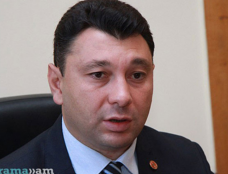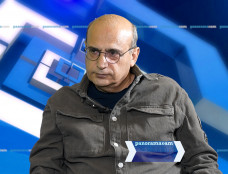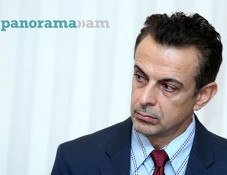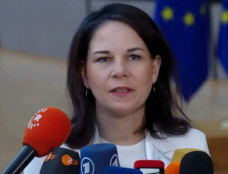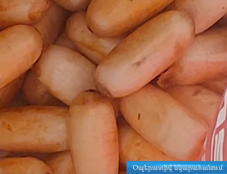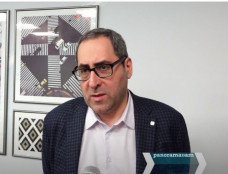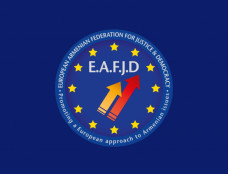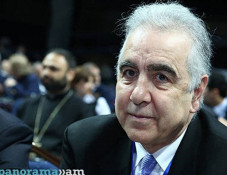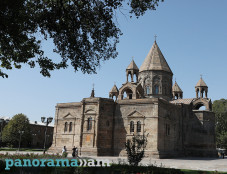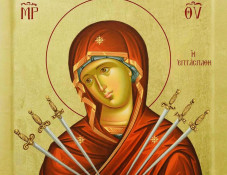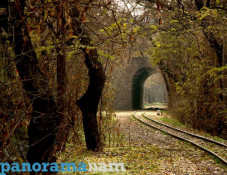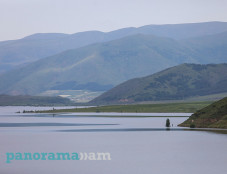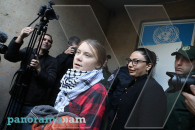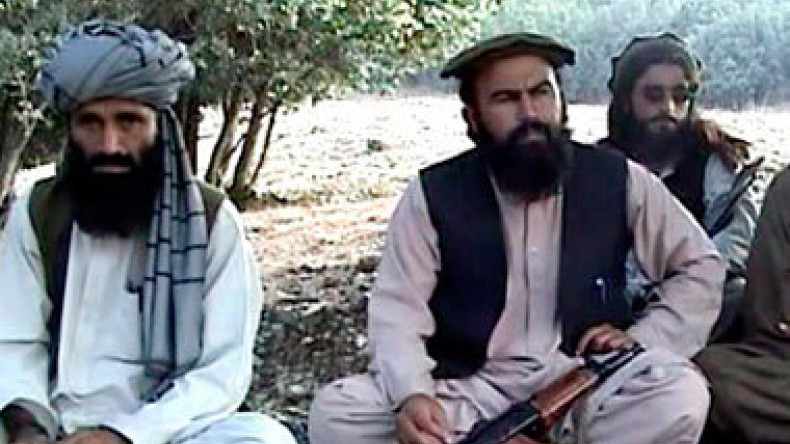
Syria conflict: collapse of authority during civil war to blame for Al-Qaeda intervention
The Civil War in Syria is becoming less about the regime versus the opposition and more about a third common enemy al-Qaeda. The West has suspended aid to Syrian rebels after reports of Islamists stealing the weapons and the General of the Free Syrian Army has even said he would consider joining forces with the regime troops to battle al-Qaeda. Gregory Gause, professor of political science at the University of Vermont, in an interview to Voice of Russia, talked about the situation in detail.
Estimating the scale of threat al-Qaeda poses in Syria at the moment, Mr Gause said, “I think it is important for us to break down the Syrian rebels into a lot of groups, because it is not simply al-Qaeda versus not al-Qaeda. There are actually two groups that claim an official al-Qaeda affiliation, one of which is the Islamic state in Iraq and Syria, which has many more foreign fighters in it. And then there is the Nusra front, which is more, and again, this is relative, concentrated in local Syrian fighters, but both claim the al-Qaeda label. Now they don’t get along, they’ve had clashes between the two of them. Then there are numerous groups who are Islamists, not al-Qaeda, but who share many of the more hardline Islamist goals of Al-Qaeda like a state based on Islamic law, for example. These groups see the al-Qaeda groups as threats,” Mr Gause elaborated. “So, it is a very complicated mosaic of groups that are fighting in Syria right now all against the regime, but also in many cases against each other.”
Speaking of the negative impact cracks on the opposition might have served it when faced with al-Qaeda, Mr Gause said, “I think that the thing that al-Qaeda took advantage of was the revolt itself and the breakdown of governance in Syria. I think al-Qaeda does very well in ungoverned areas. It has a very clear message, and, in the midst of that civil war, when the regime in Syria was taking extremely violent measures against some citizens, al-Qaeda perhaps had an explanation and an action plan that people could buy. It was based very much on sectarianism that non-Sunni Muslims, the Alawite Muslims and offshoot of Shi’ism in Syria that dominate the regime were killing Sunni Muslims. And I think that that is the kind of atmosphere, that kind of context, in which Al-Qaeda’s very sectarian message has a lot of resonance.”
According to Mr Gause, before the Syrian Civil War broke out, Al-Qaeda was “not much of a problem at all.”
“Syria was pretty buttoned-down place and the regime, brutal and authoritarian as it was, kept the lid on these things. During the Iraq War, after the American invasion of Iraq in 2003, the Syrians, in order to try to frustrate the US did allow their territory to be used by extremists, Sunni Muslim Jihadists, to get from Syria into Iraq to fight and this might have opened up the possibility for al-Qaeda groups to maybe establish cells or some kind of presence in Syria below the radar. But what really opened up the possibility here was the collapse of authority in the beginning of the Civil War.”
Mr Gause also asserted that if the merger were to happen between the opposition groups and the regime, there will still be talk about civil war “because the Free Syrian Army has lost quite a bit of its fighting capability.”
“This is a civil war. It is one in which there are numerous factions as we started out discussing. And thus, there is going to be tactical alliances made from time to time, but for Idris to actually say he was going to ally with the regime, which Sunni Muslims, the vast majority of Sunni Muslims in Syria see as a completely sectarian regime that has been killing over a hundred thousand of its own citizens, I doubt very much that he is going to have much of a following.”
Assessing the value of the aid provided to the opposition by the West.Mr Gause said, “The aid is marginal and it is not particularly significant. It is not going to change the battlefield situation.
“I think the US is caught on its Syria policy, on the one hand. From very early on, it said that Assad should go. But by the same token, it doesn’t seem to want to actively support the rebels in Syria for a number of reasons. War-weariness I think is one, fear of being dragged into the conflict and to some extent fear that people on the rebel side that the US doesn’t like, the more extremist Sunni Jihadists will get the upper hand. So, the US has a declaratory policy of wanting to help the rebels but on the ground has always dragged its feet.”
“I think that the US policy on Syria certainly since the chemical weapons deal has been much less enthusiastic about the removal of the Assad regime that it was before,” – Mr Gause said.
“There is a strong argument made by advocates of a more active American policy in support of the rebels that if the US had been much more supportive of the Free Syrian Army from the beginning of this war, then the more extreme Islamists and al-Qaeda groups wouldn’t have emerged. I don’t know if that is true or not. We can’t unwind history and run it back again and see if things would have been different. I have a tendency to doubt that it would have been that much different. I don’t think that there was much of a stomach in Washington for the kind of direct involvement that the US did in Libya. And short of that, I am not sure that the US could have enormously affected the battlefield in Syria.”
Summing up, Mr Gause said, “It does look like the regime has the upper hand right now. But things have gone back and forth on the battlefield in Syria. And so, I don’t think it is a guarantee that the regime wins this war and I am not sure that the regime as it is constituted can ever restore its authority over the entire country given the blows it has taken and the weakness that the Civil War has created in this regime. So, I am not sure it can ever turn Syria back to the way it was and the way it was ruled before 20/11. But if one looks at the battlefield trends right now, you’d have to say that the rebels have less of a chance of removing the regime than perhaps they did even a year ago.”
According to Mr Gause, before the Syrian Civil War broke out, al-Qaeda was “not much of a problem at all.”
“Syria was pretty buttoned-down place and the regime, brutal and authoritarian as it was, kept the lid on these things. During the Iraq War, after the American invasion of Iraq in 2003, the Syrians, in order to try to frustrate the US did allow their territory to be used by extremists, Sunni Muslim Jihadists, to get from Syria into Iraq to fight and this might have opened up the possibility for al-Qaeda groups to maybe establish cells or some kind of presence in Syria below the radar. But what really opened up the possibility here was the collapse of authority in the beginning of the Civil War.”Mr Gause also asserted that if the merger were to happen between the opposition groups and the regime, there will still be talk about civil war “because the Free Syrian Army has lost quite a bit of its fighting capability.”
“This is a civil war. It is one in which there are numerous factions as we started out discussing. And thus, there is going to be tactical alliances made from time to time, but for Idris to actually say he was going to ally with the regime, which Sunni Muslims, the vast majority of Sunni Muslims in Syria see as a completely sectarian regime that has been killing over a hundred thousand of its own citizens, I doubt very much that he is going to have much of a following.”
Assessing the value of the aid provided to the opposition by the West.Mr Gause said, “The aid is marginal and it is not particularly significant. It is not going to change the battlefield situation.
“I think the US is caught on its Syria policy, on the one hand. From very early on, it said that Assad should go. But by the same token, it doesn’t seem to want to actively support the rebels in Syria for a number of reasons. War-weariness I think is one, fear of being dragged into the conflict and to some extent fear that people on the rebel side that the US doesn’t like, the more extremist Sunni Jihadists will get the upper hand. So, the US has a declaratory policy of wanting to help the rebels but on the ground has always dragged its feet.” “I think that the US policy on Syria certainly since the chemical weapons deal has been much less enthusiastic about the removal of the Assad regime that it was before,” Mr Gause said.
“There is a strong argument made by advocates of a more active American policy in support of the rebels that if the US had been much more supportive of the Free Syrian Army from the beginning of this war, then the more extreme Islamists and Al-Qaeda groups wouldn’t have emerged. I don’t know if that is true or not. We can’t unwind history and run it back again and see if things would have been different. I have a tendency to doubt that it would have been that much different. I don’t think that there was much of a stomach in Washington for the kind of direct involvement that the US did in Libya. And short of that, I am not sure that the US could have enormously affected the battlefield in Syria.”
Summing up, Mr Gause said, “It does look like the regime has the upper hand right now. But things have gone back and forth on the battlefield in Syria. And so, I don’t think it is a guarantee that the regime wins this war and I am not sure that the regime as it is constituted can ever restore its authority over the entire country given the blows it has taken and the weakness that the Civil War has created in this regime. So, I am not sure it can ever turn Syria back to the way it was and the way it was ruled before 20/11. But if one looks at the battlefield trends right now, you’d have to say that the rebels have less of a chance of removing the regime than perhaps they did even a year ago.”
Newsfeed
Videos





